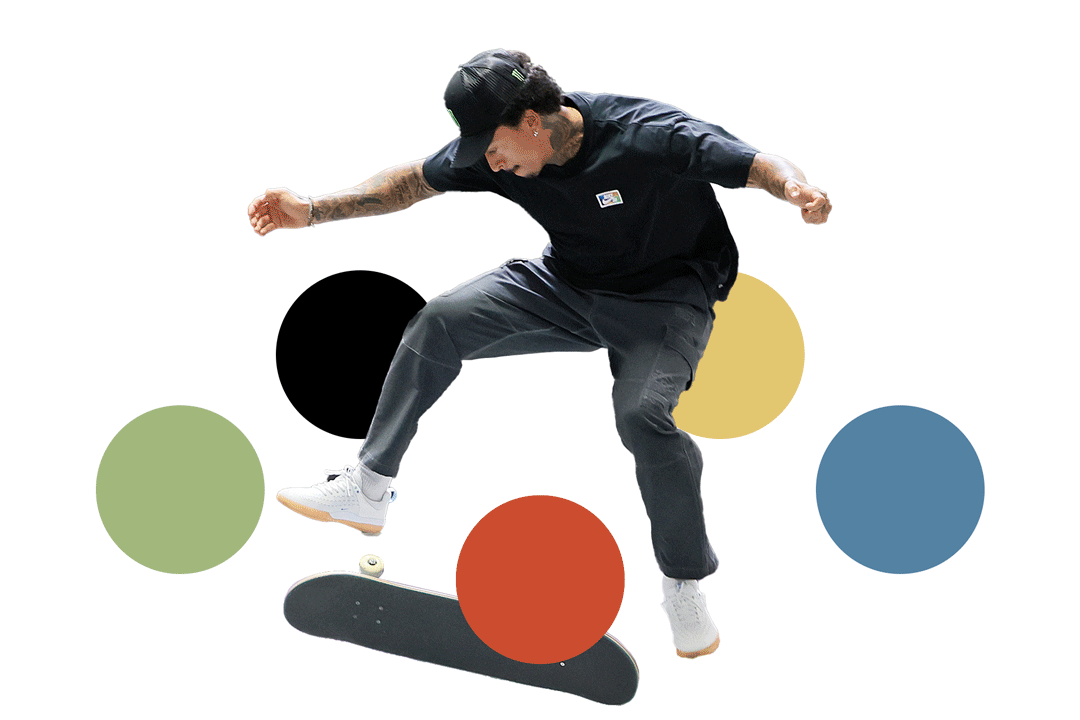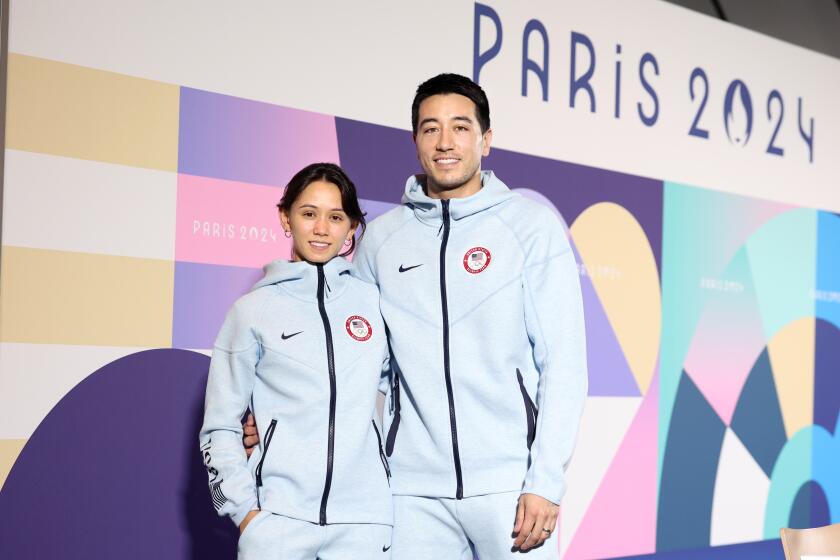WORLD SPORTS SCENE : Harding Eschews a Royal Throne for a Quiet Night of Shooting Pool
Tonya Harding’s victory Saturday at the national championships is figure skating’s version of a commoner becoming queen.
The idea of figure skating as a sport for the rich is a misconception. More often than not, parents of successful skaters are middle-class. They are hard-pressed to raise the $30,000 or so a year that it costs to keep their children at the sport’s highest level.
But once those children become champions, they are treated like royalty. Besides coaches, their entourages sometimes include agents, choreographers, costume designers, hairdressers and psychologists.
All of that might be part of Harding’s future. But on Saturday night, she still acted like the same 20-year-old from Portland, Ore., who began skating 17 years ago in a shopping mall and seemed more likely after a seventh-place finish last year to end up in the chorus line of an ice show than in the Winter Olympics.
Virtually everybody else who was anybody in figure skating was at a party in a downtown hotel given by impresario Tom Collins, the man behind the annual tour of world and Olympic champions. For a woman whose mother used to collect bottles for refunds so that she could contribute toward Harding’s skating lessons, it would have been a good place to seek out an agent.
Instead, dressed in blue jeans and a sweat shirt, the new champion was across the street in the bar of the skaters’ hotel, playing pool and drinking non-alcohol daiquiris until after midnight.
No one knows whether Harding would have won if three-time champion Jill Trenary had not withdrawn because of an ankle injury. Trenary cannot on her best day skate as well as Harding did Saturday. With the possible exception of Japan’s Midori Ito, neither can any other woman.
But Trenary, who is from suburban Minnetonka, Minn., would have had the crowd on her side. That might have inspired her, intimidated Harding and, more important, influenced the judges.
As it was, Trenary was among the Target Center crowd of 10,346 that saw Harding become the first American woman to perform a triple axel. Trenary, who will be unable to defend her world championship next month at Munich, said she was thrilled, but she also must have wondered whether the sport is passing her by at 22.
With less than one year before the Olympics, Ito and Harding have triple axels in their repertoires. Kristi Yamaguchi, second to Harding Saturday, is working on one.
Trenary is a graceful skater who combines athleticism and art better than anyone else, but she does not have the athletic ability that a triple axel requires. To win an Olympic gold medal, even she seems to realize that her rivals will have to fall.
There was not a better story here last week than that of Calla Urbanski and Rocky Marval, who finished second to Natasha Kuchiki of Canoga Park and Todd Sand of Thousand Oaks in pairs.
Marval, whose real name is Rocco Marvaldi, owns a trucking company in New Egypt, N.J. He has two scars under his left eye. One resulted from his hobby, motorcycle racing. He was in an accident six years ago. The other came a short time after he and Urbanski teamed last summer, when she nicked him with her blade.
Marval, 25, is Urbanski’s fifth partner. Four months short of her 31st birthday, she began skating 12 years before Kuchiki, 14, was born. But this was the first time Urbanski has won a medal at the national championships.
“People told me, ‘You can’t do it; you’re too old,’ ” she said. “But I’ll be here until I do what I want to do in the sport.”
Her goals once were simple. While the better skaters usually are invited to competitions at Paris or Tokyo or Toronto, others end up in Eastern Europe. “I’d just like some day to go to a competition where I don’t have to bring my own toilet paper,” she once said.
World Notes
Canada’s Vern Taylor became the first skater to perform a triple axel, which is more difficult than the other five triple jumps because it involves 3 1/2 revolutions. He landed the first one in the 1978 World Championships at Ottawa, Canada. The crowd immediately gave him a standing ovation and did not sit until several minutes after he had finished skating.
Evy Scotvold, who coached Nancy Kerrigan of Stoneham, Mass., to a third-place finish Saturday, said there are so many many gifted women skaters in this country that the European champion, Surya Bonaly of France, would have finished no better than sixth in the U.S. nationals. . . . To escape the competition, Minneapolis’ Alice Sue Claeys, who won the 1990 U.S. junior championship, will compete for Belgium. She is eligible because her paternal grandfather is Belgian.
More to Read
Go beyond the scoreboard
Get the latest on L.A.'s teams in the daily Sports Report newsletter.
You may occasionally receive promotional content from the Los Angeles Times.






